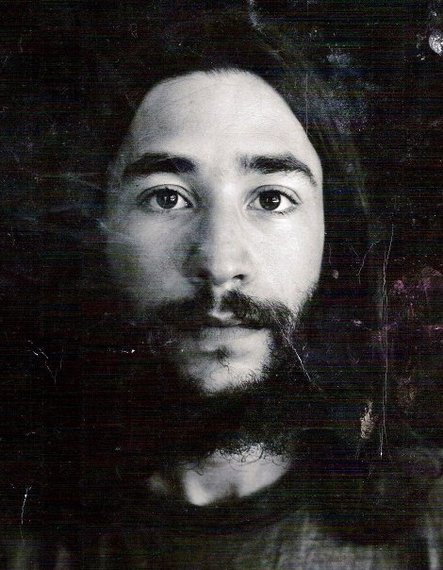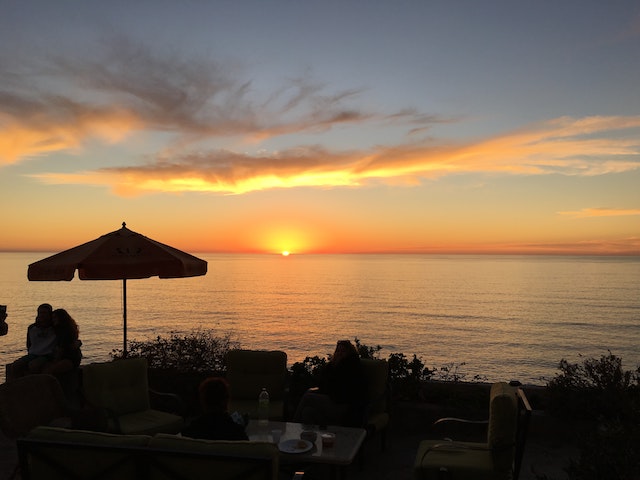The Poetry of Life

There is a moment in everyone's life when all the cards are on the table, all the chips, too -- the moment of truth when the entire universe is conspiring to call one's attention to the choice we have every single second of the day to let go of our past and move towards what is truly calling us, even if we have no idea where it will lead.
One such moment happened for me in 1969, during my first and only semester as a graduate student at Brown University's prestigious MFA Creative Writing Program.
Like most long-haired, sallow-cheeked, Vietnam-phobic seekers of truth whose depression-imprinted parents would have much preferred him to have chosen law, medicine, or teeth over poetry, I found myself, at the ripe old age of 22, majorly existentially challenged -- sleeping 12 hours a day, posting my newly minted poems on trees at midnight, and feverishly reading Rilke, Wallace Stevens, and William Carlos Williams just in case the conversation turned thusly with any number of my far more well-read poetry professors engaging me in literary conversations at any number of ultra hip parties that I kept getting invited to -- the kind of heady gatherings where Kurt Vonnegut and other traveling bards kept showing up, laugh lines around their eyes unable to mask a lifetime's worth of sadness, disappointment, and despair.
It was at one of these Ivy League soirees, emboldened by drinking and smoking more than I should have that I found myself consumed with a burning question rising from deep inside me -- the kind of question that, if left unspoken, everything I ended up writing from that moment forward would be nothing more than a clever overcompensation for my inability to speak my truth now.
Approaching my first professor, large glass of cheap red wine in my right hand, I let the question fly: "If you could be anywhere in the world, at this precise moment in time, where would you be?"
"Hmmm..." Professor #1 replied, dramatically pausing and looking to the ceiling in case a beautiful co-ed was standing nearby, "excellent question! Let me see... if I could be anywhere in the world at this precise moment in time where would it be? Well... that would be Baja California. Definitely Baja California. I love it there."

Nodding and doing my bearded graduate student best not to bump into anyone as I made my way across the suddenly tilting-to-the-left room, I spotted my second professor, an unhappily married, hammock-bellied, minor poet of a man who, I knew, had been, for the past few weeks, hitting on the same unhappily married shopkeeper in town that I was.
"Guatemala," he blurted. "Definitely Guatemala, especially the small village whose name I can't, for the life of me, remember -- a village just 15 miles outside the capital city. Love that place!"
Fueled as I was by what was now emerging as a definable pattern of response from my professors, I quickly found my way to the bar where Professor #3 was holding court, a large hummus stain on his too small polyester shirt.
"Where would I be if I could be anywhere in the world?" he repeated. "That's easy! The Pacific Northwest. How I love the rain and the fog! What a great place to write. You should definitely go there sometime, Mitch."
As I walked away, 22-year-old-knowingly, to the last of the lot, it began dawning on me that none of my so called mentors wanted to be where they were. All of them wanted to be SOMEWHERE ELSE -- a better place, a warmer place, a more exotic place. And here I was, restless, semi-depressed, aspiring to be just like them when, 20 years later, a wise-ass graduate student would be standing in this exact same room asking ME where I wanted to be and my answer, like those of my underpaid professors, would be SOMEWHERE ELSE.
Why not leave NOW while I could still get out of town? If I needed proof, I had all the proof I needed. Four professors. Four questions. Four of the same responses.
I slept very well that night and the next night, too.
When my Monday morning poetry class rolled around -- the one Professor #1 began by calling my name and noting with tenured gravitas that he wanted to SEE ME immediately after class -- a request that indicated only one thing -- the jig was up, that I, Mr-Attempt-to-Outstare-My-Professors-So-They-Would-Think-I-Knew-More-Than-I-Actually-Did, was about to be summarily kicked out of school, underwhelmed as my teachers were by the spotty quality of my work and the insidious ways in which Lawrence Ferlinghetti and Dylan Thomas kept leaking into my writing, not to mention the fact that I still had no clue why Wallace Stevens was such a big deal.
"Mr. Ditkoff," Professor #1 announced as the class emptied out, "the faculty and I... after much consideration... having reviewed your work carefully.... have decided... um....to give you a full teaching scholarship."
"Wow. That's interesting," I replied. "I quit."
"Quit?" he said. You can't quit. Don't you realize what you're being given here -- a totally free graduate school education at Brown University?"
"Like I said, sir. I quit. Thanks for the offer, but my education needs to happen somewhere else."
Which is exactly what happened.
Two days later, I was no longer a graduate student. Two weeks later I was living where I really wanted to live -- Cambridge, Massachusetts, and doing what I really wanted to do -- being a night desk clerk at a second rate hotel, plenty of time to read what I wanted to read, plenty of time to write what I wanted to write, and plenty of time to live the poetry of life, not just study it.
Clarity! Freedom! Choice! A bold step forward into the unknown!
It doesn't take a genius or a Professor at an ivy league university to figure out the moral of this little story. DO WHAT YOU WANT TO DO. LIVE WHERE YOU WANT TO LIVE. AND DO IT NOW, NOT LATER.
Time is passing. Life is too short to be living someone else's concept of it, too short to be living even your concept of it. There is something, beyond logic, beyond reason, beyond your ability to understand, that is calling you. Listen to it. Honor it. Trust it. What others might call "quitting" isn't really quitting at all -- it's letting go of the past, following your muse, and moving into the moment called NOW.
Your move.

One of my books of poetry
Storytelling for the Revolution
Storytelling at Work
Teaching storytelling to second graders in an Islamic school
My personal website
My business website
Photo #2: Beatriz Gonzalez, Unsplash
Comments
Hi Mitch,
That is one of my favorite stories from your book. Very inspiring and wise to know when to move on. Reminds me of the moment I decided to quit postgraduate school after two years at Queens College in the 1960s. I went to see the head of the psychology department and told him that I felt the need to search for a deeper meaning in my life. He told me that he had tried that once and discovered that there wasn't any deeper meaning to life. I quickly left his office.
Posted by: Michael ![[TypeKey Profile Page]](https://www.ideachampions.com/storytelling/nav-commenters.gif) at July 4, 2020 11:34 AM
at July 4, 2020 11:34 AM
This is such a good story, Mitch. Brilliantly told. Bravo. It's a lesson I at least have to continually re-learn. The insidious pressure to do what you (meaning society) thinks you should be doing goes really deep
Posted by: pcatpurrs ![[TypeKey Profile Page]](https://www.ideachampions.com/storytelling/nav-commenters.gif) at July 5, 2020 12:31 AM
at July 5, 2020 12:31 AM
Post a comment
Thanks for signing in, . Now you can comment. (sign out)
(If you haven't left a comment here before, you may need to be approved by the site owner before your comment will appear. Until then, it won't appear on the entry. Thanks for waiting.)







 If you like this blog, you might also like Mitch's other two blogs:
If you like this blog, you might also like Mitch's other two blogs: 